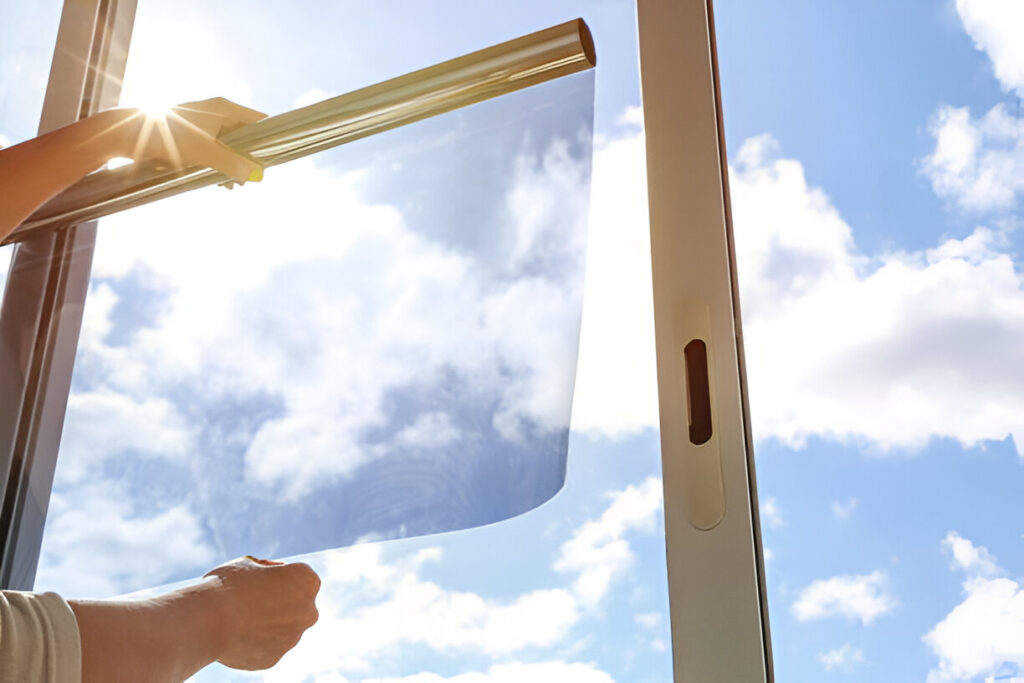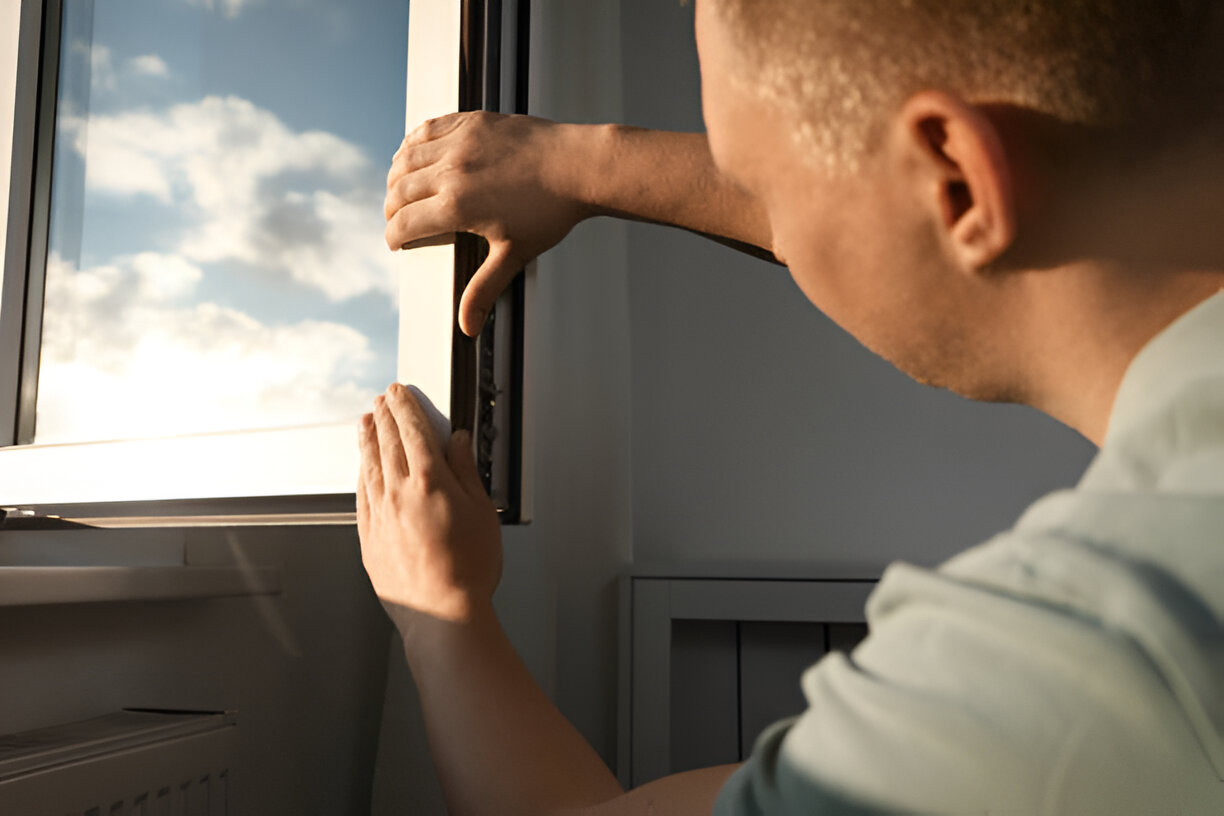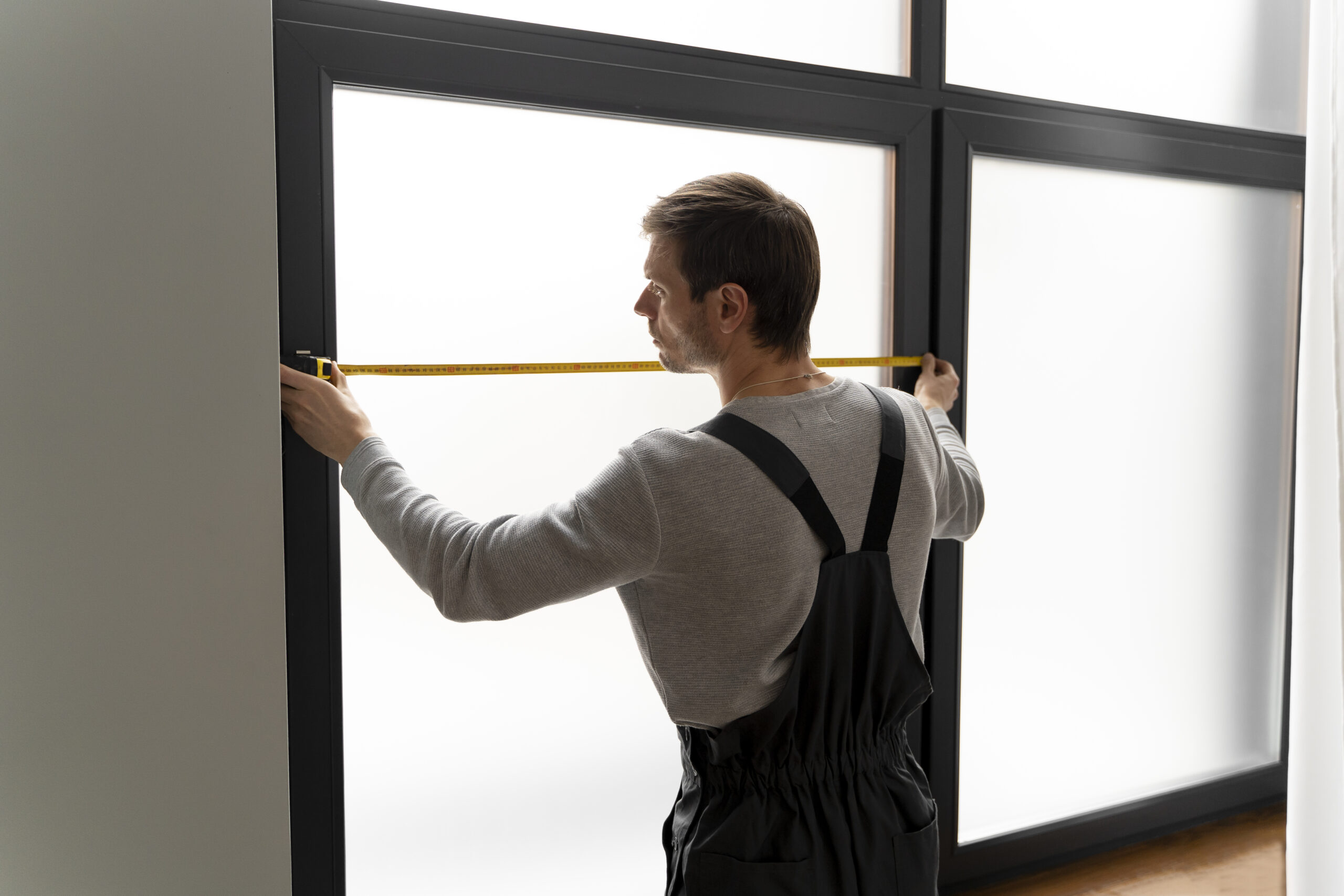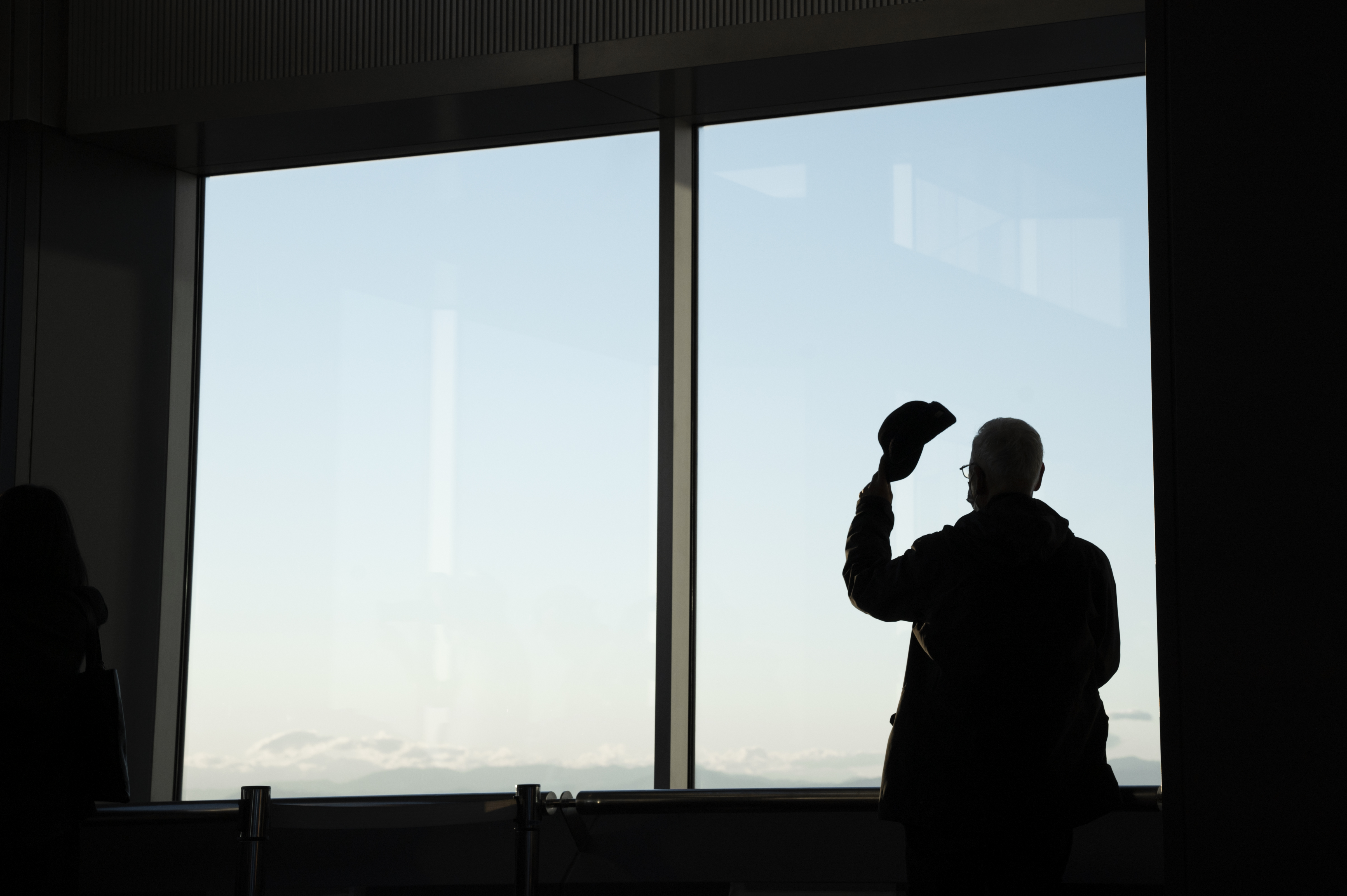Introduction
Window films offer a multitude of benefits for your home, from enhancing energy efficiency to improving security. By blocking out harmful UV rays and reducing glare, window films not only protect your interiors but also contribute to a more comfortable living environment. Selecting the right window film tailored to your specific needs is crucial. Different films serve different purposes, whether it’s for privacy, heat reduction, or aesthetic appeal. The right choice can significantly impact both the functionality and appearance of your home.
To explore various options, you might want to check out Smart Tint Solutions, which offers a range of products that cater to different needs. You can easily browse through their cart for an array of window film options available in their product category.
Understanding Different Types of Window Films
When it comes to selecting the right window film, understanding the various types available is crucial. Here are some common types:
1. Tinting Films
These films reduce glare and improve comfort by controlling the amount of sunlight entering your home. They come in different shades and can be used in both residential and commercial settings.
2. Reflective Films
These are designed to reflect a significant amount of sunlight, thereby reducing heat penetration. Reflective window film for home windows can significantly lower cooling costs during hot weather.
3. Privacy Films
Ideal for areas where privacy is essential, such as bathrooms or bedrooms. Privacy film for windows allows natural light to pass through while obscuring views from the outside.
Residential vs. Commercial Applications
Residential Window Films: Typically focus on enhancing comfort, energy efficiency, and aesthetics. Homeowners often choose films that balance privacy with natural light.
Commercial Window Films: Often prioritize energy savings, glare reduction, and security. In commercial settings, reflective films are commonly used to minimize cooling costs and improve building efficiency.
Each type of window film has unique benefits tailored to specific needs, making it important to choose the right one based on your requirements.
The Benefits of Installing Window Films in Your Home
Installing window films offers several advantages that make them a worthy investment for any homeowner. Here are some key benefits:
Energy Efficiency with Window Films
● Reduced Heating and Cooling Costs: Window films can significantly lower your energy bills by blocking heat penetration during the summer and retaining indoor heat in the winter. This leads to less reliance on HVAC systems, reducing energy consumption.
● Consistent Indoor Temperatures: By regulating indoor temperatures, window films create a more comfortable living environment. You won’t experience the extreme temperature fluctuations that typically occur due to direct sunlight or cold drafts.
Enhanced Comfort Levels
● Better Temperature Regulation: The ability of window films to manage heat gain and loss ensures that your home remains at a desirable and steady temperature throughout the year, enhancing overall comfort.
● Glare Reduction: Tinted window films help reduce glare from sunlight. This is particularly useful when watching TV or working on a computer, providing a more pleasant visual experience throughout the day.
The combination of these benefits not only improves your home’s comfort but also promotes energy efficiency, making window films a smart choice for any household.
Enhancing Your Home’s Protection with Window Films
UV protection with window films is essential for safeguarding your living spaces. By blocking up to 99.9% of harmful UV rays, window films not only protect your skin from damage but also prevent your furniture, carpets, and artwork from fading. This ensures that your home remains vibrant and well-maintained over the years.
Tinted windows play a crucial role in improving visibility and comfort during bright sunlight conditions. They significantly reduce glare, making it easier to watch TV or work on computers without straining your eyes. This enhancement in visibility leads to a more comfortable and productive living environment.
● Benefits of window film include:
○ Reduced UV exposure
○ Enhanced indoor visibility
○ Improved comfort during sunny days
Exploring Other Advantages of Window Films for Homes
Increased Privacy with Window Films
Privacy films offer a unique solution for homeowners looking to maintain a level of privacy without sacrificing natural light. These films are designed to obscure the view from the outside while still allowing sunlight to filter through, ensuring spaces remain bright and welcoming. For example, you can use frosted or patterned privacy films in bathrooms or street-facing windows to create a comfortable and private environment.
Safety Benefits of Using Window Films
Security window films provide an added layer of protection against potential threats. These films are engineered to hold shattered glass in place, reducing the risk of injury during accidents or break-ins. In areas prone to natural disasters, such as hurricanes or earthquakes, safety window films can prevent glass shards from becoming dangerous projectiles. By reinforcing your windows with these films, you enhance the overall safety and security of your home.
Choosing the Right Type of Window Film for Your Home: Key Considerations
Selecting the ideal window film involves several factors to consider:
● Climate: In hotter climates, films with high heat rejection can significantly reduce cooling costs. Conversely, in cooler regions, low-emissivity films help retain indoor heat.
● Location: Urban areas might benefit more from privacy films, while suburban homes could prioritize UV protection and glare reduction.
● Personal Preferences: Some homeowners may prefer decorative films that enhance aesthetics, while others might prioritize security or energy efficiency.
Understanding these factors ensures you choose a window film that aligns perfectly with your home’s needs.

Exploring Popular Options: Reflective Window Films, Privacy Films, and UV Blocking Films
Reflective Window Film Advantages
Reflective window films are designed to reflect sunlight, reducing heat gain and glare. They offer the following benefits:
● Energy Efficiency: By reflecting a significant portion of solar radiation, these films help maintain consistent indoor temperatures, reducing the need for air conditioning and lowering energy bills.
● Privacy: During daylight hours, reflective films provide a mirror-like effect from the outside, making it difficult for outsiders to see in while still allowing you to enjoy the view.
However, there are drawbacks:
● Nighttime Privacy: Reflective films lose their privacy benefits when it’s dark outside and lights are on inside.
● Aesthetic Impact: The mirrored appearance may not suit all architectural styles.
You can explore various designs and applications of reflective window films here.
Best Uses for Privacy Films
Privacy films are ideal for areas where you want to maintain privacy without sacrificing natural light. These films work effectively in:
1. Bathrooms and Bedrooms: Places where privacy is paramount.
2. Home Offices: Ensuring you have a distraction-free environment while still enjoying daylight.
Privacy films come in various designs, including frosted and patterned options, allowing customization to match your interior décor.
Benefits of UV Blocking Films
UV blocking films excel at protecting your home’s interior from harmful ultraviolet rays. Key benefits include:
● UV Protection: These films can block up to 99.9% of UV rays, safeguarding your skin and preventing furniture and artworks from fading.
● Glare Reduction: By minimizing glare, they improve comfort levels in rooms with high sun exposure.
Choosing the right window film involves balancing these benefits against any potential drawbacks based on your specific needs and preferences.
The Installation Process: Professional vs DIY Options for Window Film Application
Installing window film professionally versus DIY approach offers distinct pathways, each with unique benefits and challenges.
Professional Installation
Pros:
● Expertise: Professionals ensure a flawless application with minimal bubbles or creases.
● Warranty: Many services provide a warranty, offering peace of mind.
● Time-Saving: Quick and efficient, saving you valuable time.
Cons:
● Cost: Higher initial expense compared to DIY.
● Scheduling: Requires coordination with service providers, which may be inconvenient.
DIY Installation
Pros:
● Cost-Effective: Lower expense, ideal for budget-conscious homeowners.
● Flexibility: Can be done at your convenience without scheduling constraints.
● Satisfaction: Personal accomplishment from completing the project yourself.
Cons:
● Learning Curve: May require practice to avoid bubbles and misalignment.
● Time-Consuming: Potentially more time-consuming than professional installation.
● No Warranty: Any mistakes are your responsibility to fix.
Maintaining Your Investment: Tips for Long-lasting Performance from Installed Window Films
Maintaining installed window films properly ensures their durability and efficiency. Here are some best practices:
Cleaning
● Use a soft cloth or sponge with mild soapy water.
● Avoid using abrasive materials that can scratch the film.
● Rinse thoroughly with clean water and dry with a soft cloth.
Caring
● Do not use ammonia-based cleaners as they can damage the film.
● Inspect the edges periodically for any signs of peeling or bubbling.
● Keep sharp objects away to prevent accidental scratches.
Regular maintenance helps in preserving the quality and functionality of your window films, ensuring they continue to provide energy savings and protection for years to come.
Final Thoughts on Choosing the Right Window Film For Your Home Needs!
It’s important to explore different options available in the market before finalizing one that meets all your requirements perfectly. With numerous benefits such as energy efficiency, UV protection, glare reduction, and increased privacy, window films can significantly enhance your home’s comfort and value.
● Window Tinting Recommendations: Research various products to find the best fit for your climate, location, and personal preferences.
● Benefits of Window Film: Enjoy long-term savings, better indoor temperature regulation, and enhanced protection against harmful UV rays.
Choose wisely to enjoy the full spectrum of benefits window films offer.
FAQs (Frequently Asked Questions)
What are the main types of window films available for home use?
The main types of window films include tinting films, which reduce glare and improve comfort; reflective films, designed to reflect a significant amount of sunlight; and privacy films, ideal for areas where privacy is essential, such as bathrooms.
How do window films enhance energy efficiency in homes?
Window films can significantly reduce heating and cooling costs by improving temperature regulation. They help maintain a comfortable indoor environment by blocking excess heat from the sun.
What are the safety benefits of using window films?
Security window films provide an added layer of protection against break-ins and accidents. They can hold shattered glass together, reducing the risk of injury and enhancing the overall safety of your home.
Should I choose professional installation or DIY for window film application?
Professional installation offers expertise for a flawless application but comes at a higher cost. DIY installation is more cost-effective but may require practice to avoid bubbles and mistakes during application.
What maintenance tips can help ensure the longevity of installed window films?
To maintain installed window films, clean them with a soft cloth or sponge using mild soapy water. Avoid ammonia-based cleaners as they can damage the film.
What advantages do UV blocking films provide?
UV blocking films excel at protecting your home’s interior from harmful ultraviolet rays, which can fade furniture, flooring, and artwork. They contribute to a healthier living environment while preserving your home’s aesthetics.
What factors should I consider when choosing window film for specific rooms in my home?
When selecting window film for specific rooms, consider factors such as the level of privacy needed, the amount of sunlight exposure, and the room’s purpose. For example, privacy films are ideal for bathrooms, while reflective films may be better suited for living areas that receive direct sunlight.
How do different window film types affect natural light in my home?
Different types of window films can significantly alter the amount of natural light that enters your home. Tinting films reduce glare while allowing some light to pass through, reflective films can limit sunlight but may darken the space, and privacy films often diffuse light while maintaining visibility from the outside.
Can window films help reduce noise pollution in my home?
Yes, certain types of window films can help reduce noise pollution by adding an extra layer to your windows. This can help absorb sound and minimize outside disturbances, making your home more peaceful and comfortable.
What is the expected lifespan of window films once installed?
The lifespan of window films varies depending on the type and quality of the film used, as well as environmental factors. Generally, high-quality window films can last anywhere from 10 to 20 years if properly maintained and cared for.



